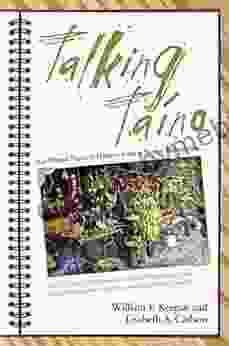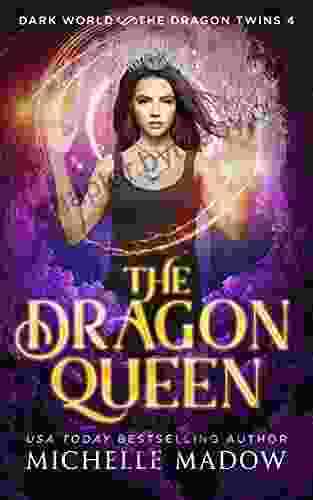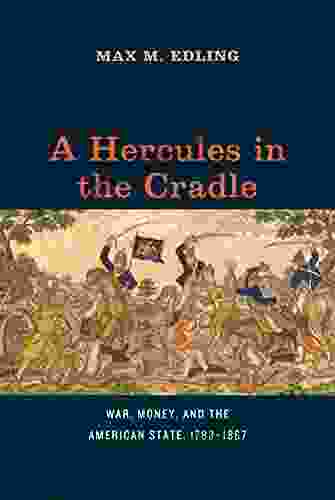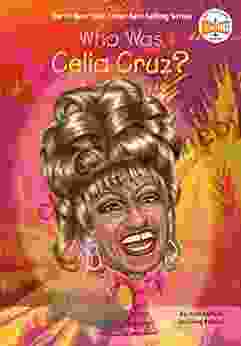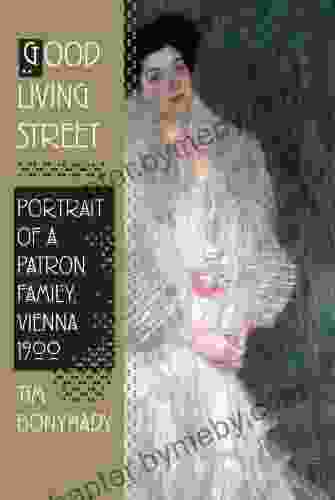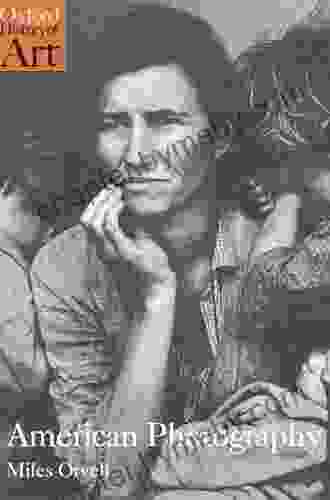Exploring the Caribbean's Natural History through Indigenous Knowledge

4.3 out of 5
| Language | : | English |
| File size | : | 9151 KB |
| Text-to-Speech | : | Enabled |
| Screen Reader | : | Supported |
| Enhanced typesetting | : | Enabled |
| Word Wise | : | Enabled |
| Print length | : | 192 pages |
The Caribbean, a vibrant tapestry of islands nestled amidst crystal-clear waters, boasts a rich natural heritage that has captivated explorers and naturalists for centuries. Beyond its stunning beaches and lush rainforests lies a wealth of knowledge and wisdom held by the indigenous peoples who have inhabited these lands for millennia.
Indigenous knowledge, also known as traditional ecological knowledge, encompasses the accumulated knowledge, practices, and beliefs that indigenous communities have developed over generations through their close relationship with the environment. It provides a unique and invaluable perspective on Caribbean natural history, shedding light on the intricate relationships between humans and their surroundings.
Indigenous Knowledge in Caribbean Archaeology
Archaeological evidence reveals that indigenous peoples have inhabited the Caribbean for thousands of years. Their interactions with the environment have left behind a rich legacy of artifacts, structures, and settlements that offer glimpses into their daily lives and relationship with nature.
- Shell middens: These mounds of discarded shells, found along coastlines, provide insights into the dietary habits and fishing practices of ancient Caribs and Arawaks.
- Stone tools: Stone axes, scrapers, and other tools unearthed from archaeological sites indicate the technological advancements and resourcefulness of indigenous communities.
- Ceramics: Pottery fragments with intricate designs and motifs showcase the artistic and cultural traditions of Caribbean peoples.
Traditional Ecological Knowledge
Indigenous knowledge extends beyond archaeological artifacts to encompass a deep understanding of the natural world. Traditional ecological knowledge (TEK) is passed down through generations orally and through practical experiences.
- Plant uses: Indigenous peoples possess extensive knowledge about medicinal plants, edible fruits, and other uses of local flora.
- Animal behavior: They have a keen understanding of animal behaviors, migration patterns, and hunting techniques.
- Ecosystem management: Indigenous communities traditionally employed sustainable practices, such as shifting cultivation and controlled burning, to maintain the balance of ecosystems.
Cultural Practices and the Environment
Indigenous knowledge is deeply intertwined with cultural practices and spiritual beliefs. Many Caribbean indigenous traditions and ceremonies are rooted in the natural world and reflect a profound respect for the environment.
- Shamans and healers: Traditional healers often use plants and other natural elements in their spiritual practices.
- Rituals and ceremonies: Cultural ceremonies often involve invoking spirits and elements of nature to ensure harmony and well-being.
- Storytelling and folklore: Stories, myths, and legends passed down through generations often convey important lessons about the environment and human-nature interactions.
Relevance for Conservation
Indigenous knowledge plays a vital role in contemporary conservation efforts. By incorporating traditional knowledge into conservation strategies, we can leverage the experience and wisdom of indigenous communities to protect and restore Caribbean ecosystems.
- Protected areas: Indigenous territories often overlap with areas of high biodiversity, making them important candidates for conservation and sustainable management.
- Traditional practices: Indigenous practices, such as sustainable harvesting and land management, can support the conservation of species and ecosystems.
- Education and awareness: Indigenous knowledge can educate non-indigenous communities about the importance of environmental conservation.
Preservation and Documentation
Preserving and documenting indigenous knowledge is crucial for its continued existence and relevance. Efforts must be made to:
- Document traditional practices: Conduct research, interviews, and ethnographic studies to record and analyze indigenous practices and knowledge.
- Support indigenous communities: Empower indigenous communities to maintain their cultural traditions and share their knowledge with others.
- Promote education: Integrate indigenous knowledge into educational programs to foster understanding and respect for different perspectives.
The Caribbean's natural history is a tapestry woven with the threads of indigenous knowledge. By exploring this rich tradition, we gain a deeper appreciation for the interconnectedness of humans and the environment. Indigenous knowledge provides unique insights that can guide conservation efforts, foster cultural understanding, and inspire us to live in harmony with nature.
As we delve into the Caribbean's natural wonders, let us not forget the wisdom and legacy of its indigenous peoples. Their knowledge, practices, and beliefs are invaluable treasures that enrich our understanding of the world and help us create a sustainable future for all.
4.3 out of 5
| Language | : | English |
| File size | : | 9151 KB |
| Text-to-Speech | : | Enabled |
| Screen Reader | : | Supported |
| Enhanced typesetting | : | Enabled |
| Word Wise | : | Enabled |
| Print length | : | 192 pages |
Do you want to contribute by writing guest posts on this blog?
Please contact us and send us a resume of previous articles that you have written.
 Book
Book Novel
Novel Page
Page Chapter
Chapter Text
Text Story
Story Genre
Genre Reader
Reader Library
Library Paperback
Paperback E-book
E-book Magazine
Magazine Newspaper
Newspaper Paragraph
Paragraph Sentence
Sentence Bookmark
Bookmark Shelf
Shelf Glossary
Glossary Bibliography
Bibliography Foreword
Foreword Preface
Preface Synopsis
Synopsis Annotation
Annotation Footnote
Footnote Manuscript
Manuscript Scroll
Scroll Codex
Codex Tome
Tome Bestseller
Bestseller Classics
Classics Library card
Library card Narrative
Narrative Biography
Biography Autobiography
Autobiography Memoir
Memoir Reference
Reference Encyclopedia
Encyclopedia Peter Max
Peter Max Wayne Stinnett
Wayne Stinnett Michael Alvear
Michael Alvear Mia Kankimaki
Mia Kankimaki Remington Kane
Remington Kane Trevanian
Trevanian Thomas Armstrong
Thomas Armstrong Paul Temporal
Paul Temporal Robert L Kelly
Robert L Kelly Tom Breitling
Tom Breitling Michael T Mcdermott
Michael T Mcdermott Lex Luger
Lex Luger Mayim Bialik
Mayim Bialik Rob Fitzpatrick
Rob Fitzpatrick Michael Kranish
Michael Kranish Master Gamer
Master Gamer Sealove
Sealove Maud Fontenoy
Maud Fontenoy Robert Milton
Robert Milton Michael Borenstein
Michael Borenstein
Light bulbAdvertise smarter! Our strategic ad space ensures maximum exposure. Reserve your spot today!
 Richard WrightFollow ·9.8k
Richard WrightFollow ·9.8k Osamu DazaiFollow ·13.8k
Osamu DazaiFollow ·13.8k Alex ReedFollow ·8.6k
Alex ReedFollow ·8.6k Dave SimmonsFollow ·6.1k
Dave SimmonsFollow ·6.1k Ethan GrayFollow ·5.2k
Ethan GrayFollow ·5.2k Jonathan FranzenFollow ·14.8k
Jonathan FranzenFollow ·14.8k E.E. CummingsFollow ·13.1k
E.E. CummingsFollow ·13.1k Noah BlairFollow ·10k
Noah BlairFollow ·10k
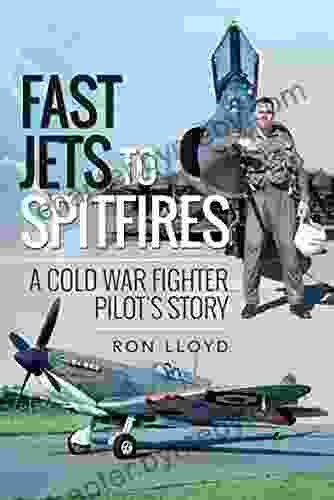
 Henry James
Henry JamesCold War Fighter Pilot Story: A Captivating Tale of...
Enter the Cockpit of...
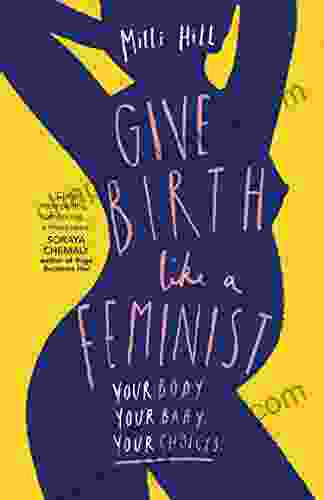
 Rudyard Kipling
Rudyard KiplingYour Body Your Baby Your Choices: The Essential Guide to...
Pregnancy and...
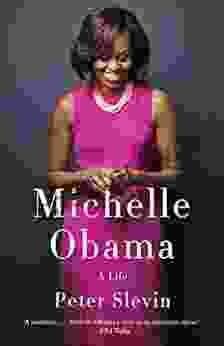
 Fabian Mitchell
Fabian MitchellMichelle Obama: An Intimate Portrait - A Must-Read for...
Michelle Obama is a prominent figure in...

 Juan Butler
Juan ButlerUncover the Secrets of the Dead Land Warshawski Novels
Prepare to delve...
4.3 out of 5
| Language | : | English |
| File size | : | 9151 KB |
| Text-to-Speech | : | Enabled |
| Screen Reader | : | Supported |
| Enhanced typesetting | : | Enabled |
| Word Wise | : | Enabled |
| Print length | : | 192 pages |


